New Faculty Members in Materials Science & Engineering
For all faculty members in MS&E go to MS&E Faculty
Fumitake (Tak) Kametani
Research Interests:
Kametani’s research is based on using a wide variety of advanced scanning electron microscopy (SEM) and (scanning) transmission electron microscopy (S/TEM) techniques to understand the origin of materials properties at the nanoscale. The microscopy studies are coupled with measurements of physical and electromagnetic properties of the samples. For instance Fig. 1 shows how a Focused Ion Beam (FIB) was used to extract individual grain boundaries of the high-temperature superconductor Bi-2212 (Bi2Sr2CaCu2Ox) to measure the local superconducting properties of the sample. In another study shown in Fig. 2, Orientation Imaging Microscopy (OIM) with an SEM was used to explain the difference in superconducting connectivity of Bi-2212 and Bi-2223 (Bi2Sr2Ca2Cu3Ox) grains by mapping the grain orientation in the two superconducting materials. Fig. 3 shows scanning transmission electron microscopy (JEOL ARM 200cF STEM) imaging at a low-angle grain boundary in YbCa2Cu3O7-δ and strain mapping to help explain current transport across the grain boundary. Specific research interests include advanced electron microscopies, nanofabrication using focused ion beam (FIB), and nanostructural correlations to physical properties in materials.
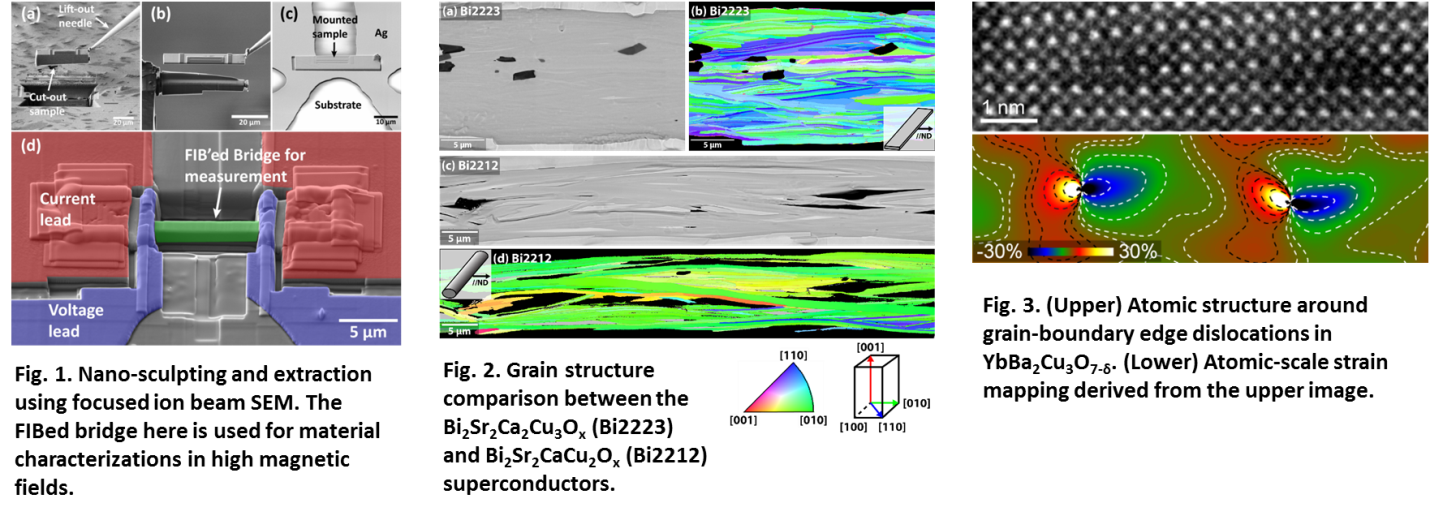
Biosketch:
- B.S. (2000) – Materials Science and Engineering – Kyoto University, Japan
- Ph.D. (2006) Material Science and Engineering – Kyoto University, Japan: Advisor Kozo Osamura
- Postdoctoral fellow (2006) – Applied Superconductivity Center – University of Wisconsin-Madison
- Visiting Assistant Scientist (2009) – National High Magnetic Field Laboratory
- Research Faculty (2010) – National High Magnetic Field Laboratory
- Associate Professor (2016) – Mechanical Engineering – FAMU-FSU College of Engineering
Christianne Beekman
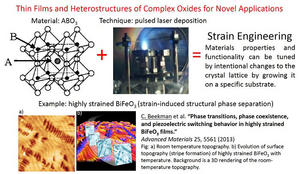
Research Interests:
Complex oxides are one of the most widely studied classes of materials often composed of many elements (including transition metals), which usually results in complex lattice structures. The interplay between many competing interactions involving spin, charge, orbital and lattice degrees of freedom results in the many remarkable physical properties of complex oxides. Due to the closeness in energy of these interactions only small perturbations are required to dramatically change the physical properties of these compounds. Hence, these materials provide an excellent basis for current and future (applied) research in a number of exciting areas, such as multiferroics, magneto-optics, data storage devices and solid oxide fuel cells.
An example of a perturbation that is often used is epitaxial strain, i.e. intentional lattice mismatch between a thin film and the substrate that it is grown on. Recent studies have shown that the application of epitaxial strain can control and/or enhance a variety of scientifically and technologically important properties such as magnetoresistance, ferroelectricity and multiferroicity.
I am setting up a state-of-the-art thin film growth and characterization laboratory at the High Magnetic Field Laboratory, exploiting the many interactions in complex oxides to find new ways to control their properties using external perturbations (such as strain, electric fields and optical excitation). This will lead to new insights into a broad range of fundamental physical properties as well as advancements in developing novel heterostructure devices. Read more about Dr. Beekman's research interests by clicking here.
Biosketch:
- Assistant Professor – Physics Department, FSU, 2014
- Postdoctoral fellows at the University of Toronto and at Oak Ridge National Laboratory
- Ph.D. in Physics from Leiden University, The Netherlands, 2010
- M.S. in Physics from Leiden University, The Netherlands, 2005
Hoyong Chung
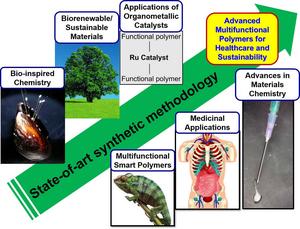
Research Interests:
- Development and applications of new polymeric materials
- Polymer synthesis
- Biomaterials
- Smart materials (multi-functional, stimulus responsive, and self-healing polymers)
- Functional polymeric materials synthesis using organometallic catalysts
- New polymerization development and kinetics of polymerization
- Polymer Science and Engineering
Research experience: My research experience includes the synthesis and appropriate characterization of bio-inspired medical adhesives, medically applied temperature sensitive polymers to remove ophthalmological impurities, targeted microbubbles for kidney stone fragmentation, Ru-based olefin metathesis polymerization catalysts and chemical modification to lignin-based biopolymers. My combined research experience is highly interdisciplinary including aspects of mechanical engineering, clinical medical practice, material science and biomedical engineering. Although my initial background is in polymer synthesis, I proactively developed various practical engineering skills to optimize the performance of new polymeric materials. My capability as a practical interdisciplinary polymer chemist was proved by multiple patents and peer-reviewed journal publications. I plan to continue his research to develop new multifunctional polymers relevant to human health and sustainability.
Research details: My group studies the design and synthesis of application-oriented polymers using interdisciplinary concepts from biology, materials science, organic chemistry, and chemical engineering. This research includes development of new biomedical materials, sustainable smart materials, and catalytic polymer materials. Each research topic seeks to answer fundamental questions in polymer chemistry and utilize this insight to solve real-world issues. Read more about Dr. Chung's research interests by clicking here.
Biosketch:
- Assistant Professor – Chemical and Biomedical Engineering, FSU, 2014
- Postdoctoral scholar, Chemistry and Chemical Engineering, California Institute of Technology 2014 (Advisor: Robert H. Grubbs)
- Ph.D., Chemistry, Carnegie Mellon University 2011 (Advisor: Newell R. Washburn)
- M.S., Chemistry, University of Nevada, Las Vegas 2006
- B.S., Polymer Science and Engineering, Kyungpook National University, Daegu, South Korea 2004
Yan-Yan Hu
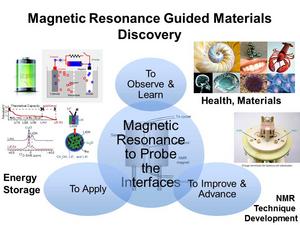
Research Specialties:
Solid-state NMR, Interfaces, Energy Storage, Electrochemistry, Organic-Inorganic Composite Materials
Specific Research Interests:
Interfaces are integral parts of composite materials and can significantly affect their physical and chemical properties. In biological systems, for example, molecules at the interfaces regulate mineral formation or mitigate structural mismatch of the organic and inorganic moieties to provide optimal mechanical properties. In energy storage systems, interfacial processes play a key role in charge and mass transport, degradation, and safety. A thorough fundamental understanding of these underlying interfacial processes has important scientific and engineering implications. However, due to the intrinsic nature of interfaces being “buried” and disordered, it is very challenging to reveal chemical, structural, and dynamical information at interfaces. Research in this group leverages the unique in-situ multinuclear high-resolution solid-state nuclear magnetic resonance (NMR) for investigating buried interfaces under operation. By complementing NMR data with those obtained from electron microscopy and x-ray/neutron techniques, a complete picture of structure-property relationship for the interfaces of multilayer functional structures can be established. Specific research interests are listed below. Read more about Dr. Hu's research interests by clicking here.
- Energy Materials
- Biological/Biomimetic Composite Materials
- Development and Applications of New NMR Characterization Techniques
Biosketch:
- Assistant Professor – Department of Chemistry and Biochemistry, FSU 2014 (Advisor: Klaus Schmidt-Rohr)
- Postdoctoral fellow at the University of Cambridge (Advisor: Clare Grey)
- Ph.D. in Chemistry from Iowa State University, 2011
- B.S. in Chemistry from Tsinghua University, Beijing, China, 2016
Chen Huang
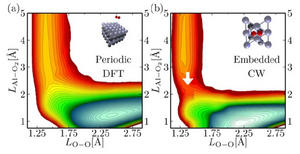
Research Interests:
My major research interest focuses on developing advanced theoretical methods to solve challenging electronic and kinetic problems in materials. A reliable understanding of electronic and kinetic properties in materials is essential for the success of the computer-aided rational design of materials. I am actively developing a so-called quantum mechanics embedding theory which offers a way to perform multiscale quantum mechanics simulations of complex materials and molecules. In such embedding theory, different regions in materials are treated with different levels of quantum mechanics methods, and these regions are then coupled in a seamless and first-principle manner. I am applying my embedding theory to some challenging problems in materials physics, e.g., phase ordering and magnetism in strongly correlated materials, as well as catalytic processes in clean energy research. Another of my research interests is long-timescale simulation methodology. Current projects on this subject aim to understand vacancy diffusion and clustering in Li-ion batteries by using accelerated molecular dynamics. Read more about Dr. Huang's research interests by clicking here.
Image 1: The energy barrier to the chemical reaction of oxygen molecule on aluminum surface cannot be reproduced by conventional density functional theory. The energy barrier (marked by the white arrow) is correctly revealed by quantum mechanics embedding theory.
Biosketch:
- Assistant Professor – Department of Scientific Computing, FSU, 2014
- Postdoctoral Fellow at Los Amos National Laboratory (Advisors: Arthur Voter and Danny Perez)
- Ph.D. in Physics from Princeton University, 2011 (Advisor: Emily Carter)
- B.Sc. in Applied Physics from Tsinghua University, Beijing, China, 2003
Justin Kennemur
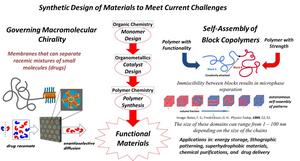
Research Interests:
Research in the Kennemur Group focuses on the design and synthesis of functional polymer systems with the goal of creating new materials that address key issues in society. An area of great interest is the ability of macromolecules to autonomously self-assemble into a hierarchy of secondary, tertiary, and even quaternary structures. By tailoring the design at the molecular level, we can investigate the important principles involved in these processes and ultimately tune properties to gain a desired function from the material. Our research is highly interdisciplinary and relies on organic and organometallic chemistry to create the materials, analytical chemistry to characterize their structure, and polymer physics and engineering to probe their function. Specific areas of interest include: block polymer self-assembly, chirality in polymers and block polymers, and renewable and degradable polymers. Read more about Dr. Kennemur research interests by clicking here.
Biosketch:
- B.S. Chemistry - (2002) – Radford University; Advisors: Cindy A. Burkhardt & Francis Webster
- Senior Chromatography Analyst – (2002-2005) – Polymer Solutions Inc. , Blacksburg, VA
- Ph.D. (2010) – North Carolina State University; Advisor: Bruce M. Novak
- Post-Doc (2011 – 2014) – University of Minnesota – Twin Cities; Advisors: Frank S. Bates & Marc A. Hillmyer
Shangchao Lin
Research Interests:
Multi-scale computational materials science, atomistic simulations of functional nano-/biomaterials, coarse-grained simulations of composite microstructures, nanoscale thermal transport, advanced thermal fluids, electrochemical energy storage, water purification and desalination, nano/biomechanics, colloid and surface chemistry, and interfacial phenomena. Read More about Prof. Lin's research interests by visiting http://eng.fsu.edu/me/people/lin.html
Biosketch:
Shangchao Lin is currently an Assistant Professor in the Department of Mechanical Engineering. Previously (2012-2014) he was a postdoctoral associate in the Laboratory of Atomistic and Molecular Mechanics in the Department of Civil and Environmental Engineering at Massachusetts Institute of Technology (MIT). He holds a B.S. degree summa cum laude (2006) in Mechanical Engineering from the joint program of Shanghai Jiao Tong University and the University of Michigan, Ann Arbor. He received his M.S. (2008) and Ph.D. (2012) degrees in Mechanical Engineering from MIT for his work on molecular simulations of carbon nanomaterials in colloids and at interfaces. He has published more than 17 peer-reviewed journal articles (more than 400 citations) and given more than 10 invited seminar presentations at major universities and conferences. Some of his works are highlighted by MIT News, Institute of Physics (IOP), and Chemical & Engineering News (C&EN).

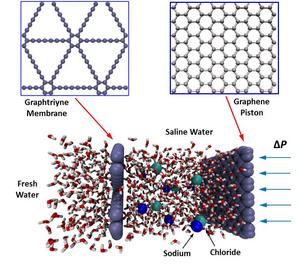
Image 1: Nanowebs for Water Desalination: simulation picture of saline water filtration by combining two ultrathin carbon nanomaterials. The nanoporous graphtriyne acts like a membrane (nanoweb) that blocks salt ions completely but allows water to pass through, while the nonporous graphene acts like a piston. These 2D materials can make future water desalination highly energy efficient without losses from friction or drag.
Image 2: From Nano to Micro: diagram showing the process of creating highly aligned microstructures using nano/biomaterials as novel building blocks. The multi-scale simulation framework aims to bridge the gap between two different length scales. This research can help us design new functional materials ranging from efficient energy conductors (for heat, electricity, light, etc.) to mechanically stiff and tough fibers.
Jose L. Mendoza-Cortes
Research Interests:
Our research philosophy focus on attacking problems in engineering and pure sciences and developing methods needed to solve them, not the other way around. These problems are studied by developing or using established methods related to: Multiscale – Multiparadigm simulations (from atoms to continuum), Quantum Mechanics (DFT, MP, CCSD), Atomistic Simulations (MD, Force Field development, ReaxFF, Coarse grained FF), Statistical Mechanics (Soft matter), Computational Engineering (Chemical and Mechanical Eng., and Materials) and Machine Learning (Big Data). Thus, we borrow many techniques and approaches from various areas including chemical and mechanical engineering, material sciences, chemistry, physics, mathematics & computer science.
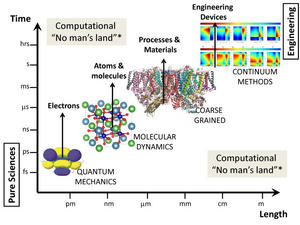
Some of the applications our methodologies and research programs offers are:
- *Renewable Energy (Solar, Chemical, Electrical)
- *Energy Storage (Batteries, Fuel Cells, Artificial Photosynthesis)
- *Materials Design (Polymers, Membranes, PV, devices)
- *Biomaterials (biocompatible and Biomimetic)
- *Catalysis (organometallics, homogeneous and heterogeneous)
- *Electrochemistry (new materials and interfaces)
- *Crystallization Mechanisms (pharmaceuticals, high energy molecules)
- *Nanotechnology (Nanocrystals, Nanoparticles, Single Molecule Electronics)
- *Processes (Separation, devices)
Our work has been cited more than 2,100 times according to Google Scholar (Aug, 2014). You can learn more about Prof. Mendoza-Cortes and his group by sending him an email to jmendozacortes@fsu.edu or visiting the following websites: http://mendoza.eng.fsu.edu/ , http://eng.fsu.edu/faculty/cbe/mendoza-cortes.html.
Biosketch:
- Assistant Professor, Department of Chemical and Biomedical Engineering, Florida State University (beginning Jan. 2015)
- Postdoctoral Researcher, UC Berkeley & Berkeley National Lab (Advisor: Martin Head-Gordon), 2014
- Staff Scientist, California Institute of Technology & Joint Center for Artificial Photosynthesis, 2013
- Ph.D., California Institute of Technology (Advisor: William A. Goddard), 2012
- M.S., California Institute of Technology (Advisor: William A. Goddard), 2008
- B.S., Tec de Monterrey (ITESM), 2008. University of California, Los Angeles (Advisor: Omar M. Yaghi), 2006-2008
Chengying (Cheryl) Xu
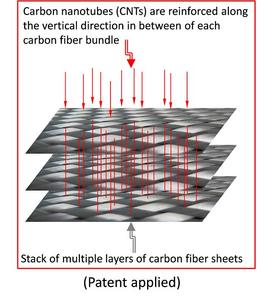
Research Interests:
My research interests include manufacturing of advanced materials, manufacturing process optimization and control, high temperature sensor design. Read more about Dr. Xu by clicking here.
Biosketch:
- Associate Professor – Department of Mechanical Engineering – FSU, 2014
- Ph.D. in Mechanical Engineering, Purdue University, 2006
- M.S. in Mechanical Manufacturing and Automation from Beijing University of Astronautics, Beijing, China, 2001
Zhibin Yu
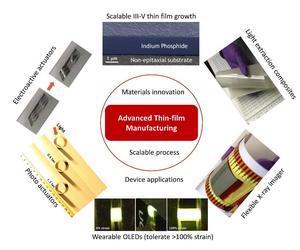
Research Interests:
Functional materials in a thin-film form (thicknesses from tens of nanometers to a few microns) are the essential components in a number of high-end electrical and optical devices including high efficiency solar cells, high brightness LEDs and lasers, high speed transistors and ultra-sensitive biomedical sensors. My major research interest centers on thin-film materials and process innovation: i) to synthesize new thin-film materials to further advance the frontiers in the above fields, ii) as well as to develop novel processing methods to overcome the scalability limitations at the manufacturing stage. The goal is to achieve low cost, high performance energy devices at manufacturing scale for generating renewable energy and boosting energy efficiency. Read more about Dr. Yu's research interests, please visit https://sites.google.com/site/zhibinmaterials/
Biosketch:
- Assistant Professor, Industrial and Manufacturing Engineering, FSU, 2014
- Postdoctoral scholar, Electrical Engineering, UC Berkeley, 2014
- Ph.D., Materials Science and Engineering, UCLA, 2010
- B.S., Chemical Engineering, Tsinghua University, 2001

